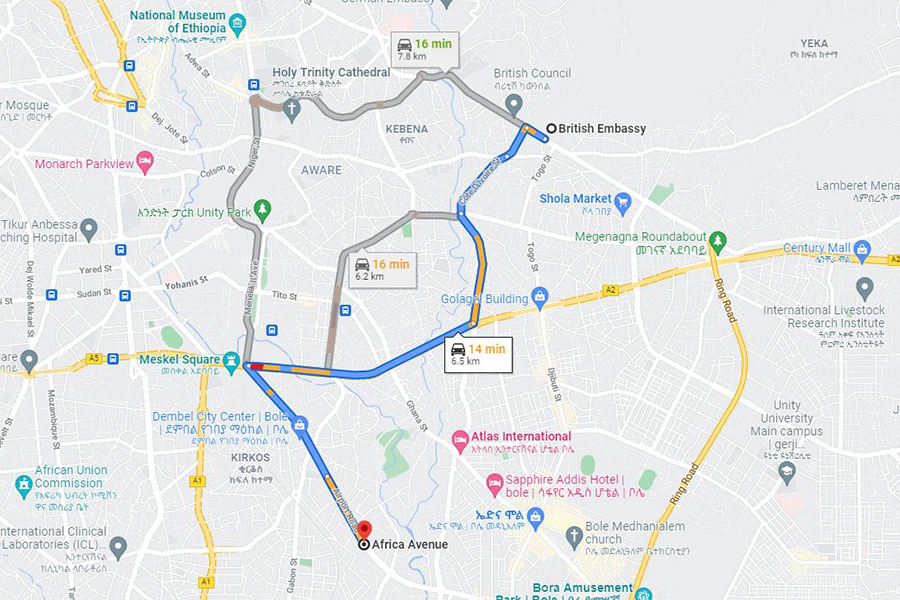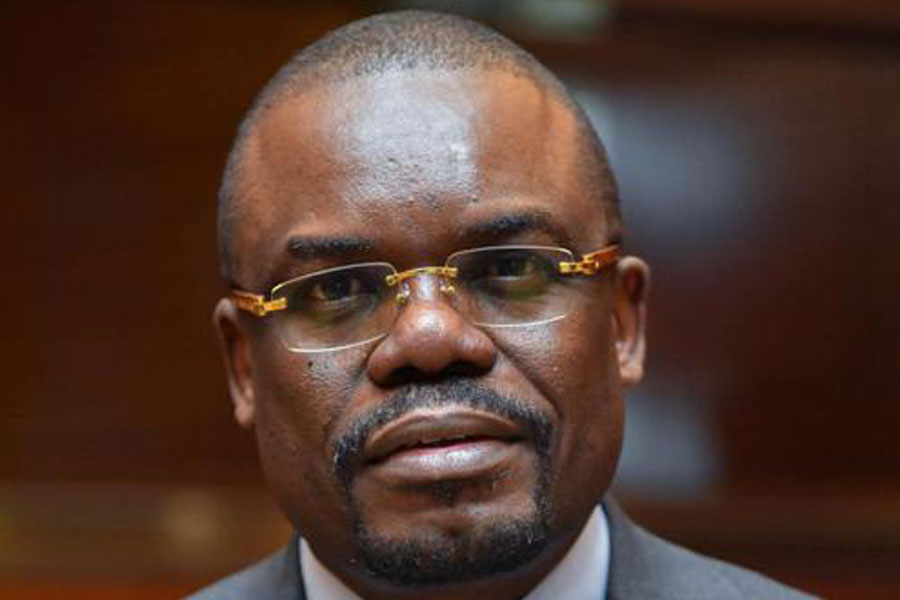
Mar 16 , 2024
By Hintsa Andebrhan
Hintsa Andebrhan (hintsa1974@gmail.com) is interested in politics and history.
In a recent display of yearning for global mentorship, a young Ugandan made headlines by asking Russian President Vladimir Putin to adopt and mentor him, aspiring to become an influential leader. The incident ensued at the World Youth Festival in Russia last month, where the young man, ostensibly representing his country, openly expressed his admiration for Putin's leadership, referring to him as a 'father figure' in a public forum.
While demonstrating personal ambition, this act inadvertently revealed a deeper issue of a waning sense of self-reliance and confidence among some African youths.
Similarly, at a democracy forum hosted by Washington D.C., two young South Africans voiced their concerns about the state of democracy in their homeland. They appealed to the United States for assistance in shielding Africa from what they perceived as the adverse effects of a new Russian multipolar world order. Their plea, however, seemed to overlook Nelson Mandela's sacrifices and the arduous struggle against apartheid that defined South Africa's path to democracy.
Such motions suggest a growing trend where African youths, instead of drawing inspiration from their rich historical legacies, look outward for solutions to their continent’s troubles.
The incidents should raise relevant questions about the perceived erosion of African self-confidence and an increasing dependency on external powers for leadership and democratic ideals. The valour of African leaders like Mandela, who fought for freedom and democracy, seems to be fading from collective memory.
Said Mandela: "Do not judge me by my successes; judge me by how many times I fell [down] and got back up again."
This ethos of strength and self-reliance appears to be in jeopardy, as demonstrated by the actions of these young individuals on international platforms.
The discussion around the African Growth & Opportunity Act (AGOA) offers another perspective on Africa's external reliance. While serving as a senior policy advisor and chief trade negotiator, Mamo Mihiretu penned an OP-Ed piece published in 'Foreign Policy' magazine on October 13, 2021. In the article, he discussed the significance of AGOA for Ethiopia's manufacturing sector, with a headline that does not ambiguously state what was at stake: "Don’t Remove Ethiopia’s AGOA Trade Privileges."
Mamo, now governor of the central bank, warned that removing preferential trade arrangements under AGOA could pose an existential threat to Ethiopia's expanding manufacturing industry. His commentary reflected broader concerns about the reliance on legislation like AGOA, which, despite its benefits, is seen by some as perpetuating a form of economic colonialism.
AGOA was established through bipartisan support in the U.S. Congress and signed into law by President Bill Clinton in 2000, but African policymakers and economic experts were notably absent from its formulation discussions. This should be understandable, for Africa was on the receiving end of America's largess, regardless of the motivations of leaders at the time. It may border on nativity to take their declared desire to encourage human rights and democratic values at face value. Eventually, the Biden Administration delisted Ethiopia from the AGOA privilege, blaming the administration of Prime Minister Abiy Ahmed for gross human rights violations.
Mamo’s concerns articulated in the magazine underlined the importance of self-determined economic policies in Africa. As the Governor, his role is now crucial in developing strategies to safeguard Ethiopia’s autonomous economic policymaking from external pressures, including those from the International Monetary Fund (IMF) and the World Bank. His leadership should symbolise the need for African countries to fortify their economic foundations independently, rather than relying solely on international frameworks that may not fully align with their interests.
Africa is rich in natural resources and human capital, yet struggles with an identity crisis fueled by a lack of confidence in its people's capabilities and a reliance on external validation and support. The African Union (AU), meant to be a bastion of continental unity and self-determination, often finds itself under the sway of foreign influences, uncovering the persistent challenge of shedding the yoke of modern colonialism.
The actions of the young Ugandan and South Africans and the economic concerns articulated by Governor Mamo have something in common. They transcend individual incidents, reflecting a continent still wrestling with the legacy of colonialism decades after the last country declared independence. They say a lot about how tough it is to forge a path toward genuine independence. The lessons of leaders like Mandela, who championed the values of perseverance, are more relevant today than ever.
The continent's future hinges on its ability to capitalise on its internal strengths and resources, cultivating a new generation of leaders who look inward for inspiration and guidance rather than outward for solutions.
PUBLISHED ON
Mar 16,2024 [ VOL
24 , NO
1246]


Radar | Oct 07,2023

Commentaries | Apr 19,2025

Viewpoints | Sep 04,2021

Commentaries | Jun 07,2025

Editorial | Feb 06,2021

Fortune News | Dec 11,2021

Radar | Feb 25,2023

Editorial | Mar 26,2022

Advertorials | Sep 13,2021

Commentaries | Oct 30,2021

My Opinion | 131451 Views | Aug 14,2021

My Opinion | 127803 Views | Aug 21,2021

My Opinion | 125783 Views | Sep 10,2021

My Opinion | 123419 Views | Aug 07,2021

Dec 22 , 2024 . By TIZITA SHEWAFERAW
Charged with transforming colossal state-owned enterprises into modern and competitiv...

Aug 18 , 2024 . By AKSAH ITALO
Although predictable Yonas Zerihun's job in the ride-hailing service is not immune to...

Jul 28 , 2024 . By TIZITA SHEWAFERAW
Unhabitual, perhaps too many, Samuel Gebreyohannes, 38, used to occasionally enjoy a couple of beers at breakfast. However, he recently swit...

Jul 13 , 2024 . By AKSAH ITALO
Investors who rely on tractors, trucks, and field vehicles for commuting, transporting commodities, and f...

Jun 28 , 2025
Meseret Damtie, the assertive auditor general, has never been shy about naming names...

Jun 21 , 2025
A well-worn adage says, “Budget is not destiny, but it is direction.” Examining t...

Jun 14 , 2025
Yet again, the Horn of Africa is bracing for trouble. A region already frayed by wars...

Jun 7 , 2025
Few promises shine brighter in Addis Abeba than the pledge of a roof for every family...

Jun 29 , 2025
Addis Abeba's first rains have coincided with a sweeping rise in private school tuition, prompting the city's education...

Jun 29 , 2025 . By BEZAWIT HULUAGER
Central Bank Governor Mamo Mihretu claimed a bold reconfiguration of monetary policy...

Jun 29 , 2025 . By BEZAWIT HULUAGER
The federal government is betting on a sweeping overhaul of the driver licensing regi...

Jun 29 , 2025 . By NAHOM AYELE
Gadaa Bank has listed 1.2 million shares on the Ethiopian Securities Exchange (ESX),...